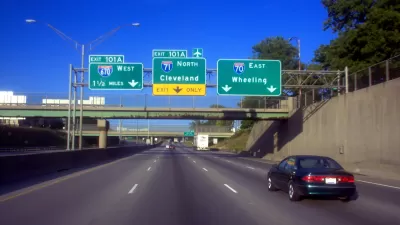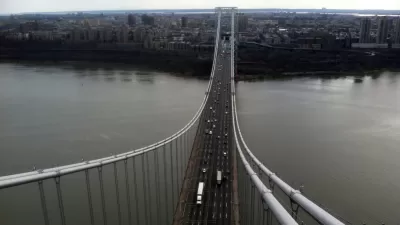That's the grade given by the American Society of Civil Engineers, in their 2009 Report Card on America's Infrastructure. This editorial argues argues that stimulus funding won't be enough to fix it.
"A share of the stimulus package was always supposed to go toward so-called "shovel ready" infrastructure projects, but public works advocates in the Senate and House had to fight to get more funding designated. The revised stimulus plan would allocate $150 billion of the $789 billion recovery measure to be spent on infrastructure projects, including building and repairing highways and bridges, expanding transit systems, upgrading rail systems and clean water projects.
Those will be welcomed jobs -- especially in Michigan.
But Michigan will still be sorely in need of funds to deal with its transportation infrastructure. Figuring out a new way to pay for highways, bridges and mass transit has to be a priority for Gov. Jennifer Granholm and lawmakers in Lansing this year. If it does nothing, the state stands to lose $1 billion a year in federal funds, which it must match at 20 percent. Part of the solution should be a restructuring and increase of the state's gas tax."
FULL STORY: Repair, rebuild nation's infrastructure

Maui's Vacation Rental Debate Turns Ugly
Verbal attacks, misinformation campaigns and fistfights plague a high-stakes debate to convert thousands of vacation rentals into long-term housing.

Planetizen Federal Action Tracker
A weekly monitor of how Trump’s orders and actions are impacting planners and planning in America.

In Urban Planning, AI Prompting Could be the New Design Thinking
Creativity has long been key to great urban design. What if we see AI as our new creative partner?

How Trump's HUD Budget Proposal Would Harm Homelessness Response
Experts say the change to the HUD budget would make it more difficult to identify people who are homeless and connect them with services, and to prevent homelessness.

The Vast Potential of the Right-of-Way
One writer argues that the space between two building faces is the most important element of the built environment.

Florida Seniors Face Rising Homelessness Risk
High housing costs are pushing more seniors, many of them on a fixed income, into homelessness.
Urban Design for Planners 1: Software Tools
This six-course series explores essential urban design concepts using open source software and equips planners with the tools they need to participate fully in the urban design process.
Planning for Universal Design
Learn the tools for implementing Universal Design in planning regulations.
Gallatin County Department of Planning & Community Development
Heyer Gruel & Associates PA
JM Goldson LLC
City of Camden Redevelopment Agency
City of Astoria
Transportation Research & Education Center (TREC) at Portland State University
Jefferson Parish Government
Camden Redevelopment Agency
City of Claremont





























